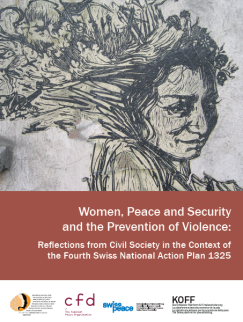Drawing on interviews from CSO representatives from Kenya, as well as on discussions from partner institutions working in other geographical locations, key conclusions from this study find that CSOs working on violence prevention are critical of the PCVE agenda. There are various reasons for this, their concerns primarily relate to the disproportionately negative impact that women’s CSOs and women face from Kenya’s PCVE approaches. Lack of definitional clarity has resulted in issues with the language and discourse surrounding PCVE. PCVE programming in Kenya tends to be driven by donor interests, which risks imposing externally devised rather than context-specific solutions. Larger, often unqualified, organizations receive funding at the detriment of local WBOs, CBOs, CSOs. The role of restrictive PCVE and CT measures curtails CSOs activities, ‘squeezing’ women’s organizations between non-state actor violence, state security forces and restrictive security measures. The continuation of hard security approaches which disproportionately target Muslim population, such as military interventions and detentions, fuel resentment among communities. Such measures have contributed to a rise in Islamophobia, with negative consequences for Muslim women. Gendered assumptions about women’s unique capacity to influence their children and family members ‘risks tasking women with the burden of acting as security agents in their homes and communities without the necessary resources and protection’ (p6). Mesok argues for a thorough gender analysis in CVE efforts in order to prevent causing additional harm to women and girls.
2019
